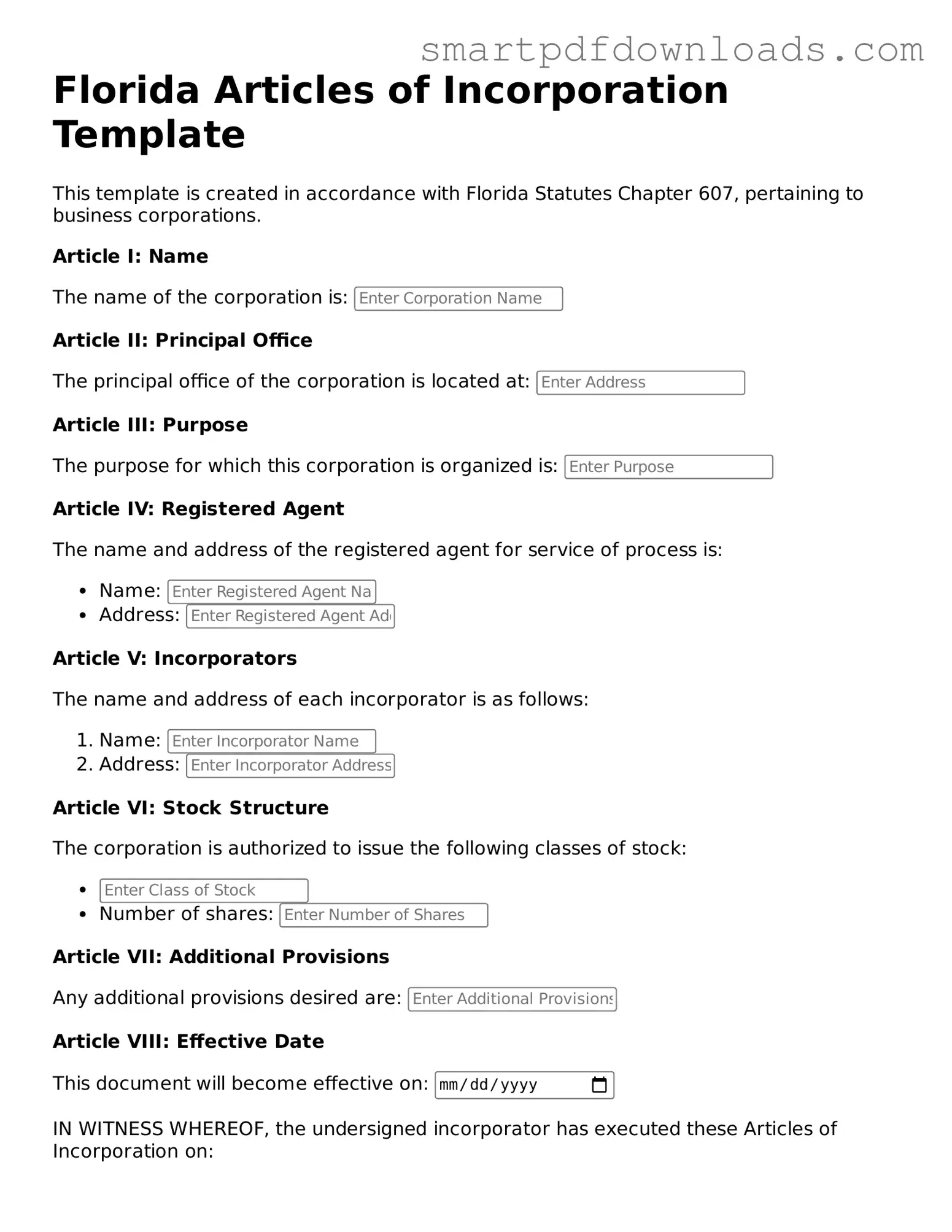Legal Articles of Incorporation Form for the State of Florida
The Florida Articles of Incorporation form is a crucial document required for establishing a corporation in the state of Florida. This form outlines essential details about the corporation, including its name, purpose, and structure. Proper completion and filing of this form are vital for legal recognition and protection of the corporation's interests.
Edit Articles of Incorporation Online

Legal Articles of Incorporation Form for the State of Florida
Edit Articles of Incorporation Online

Edit Articles of Incorporation Online
or
⇓ PDF File
Finish the form and move on
Edit Articles of Incorporation online fast, without printing.